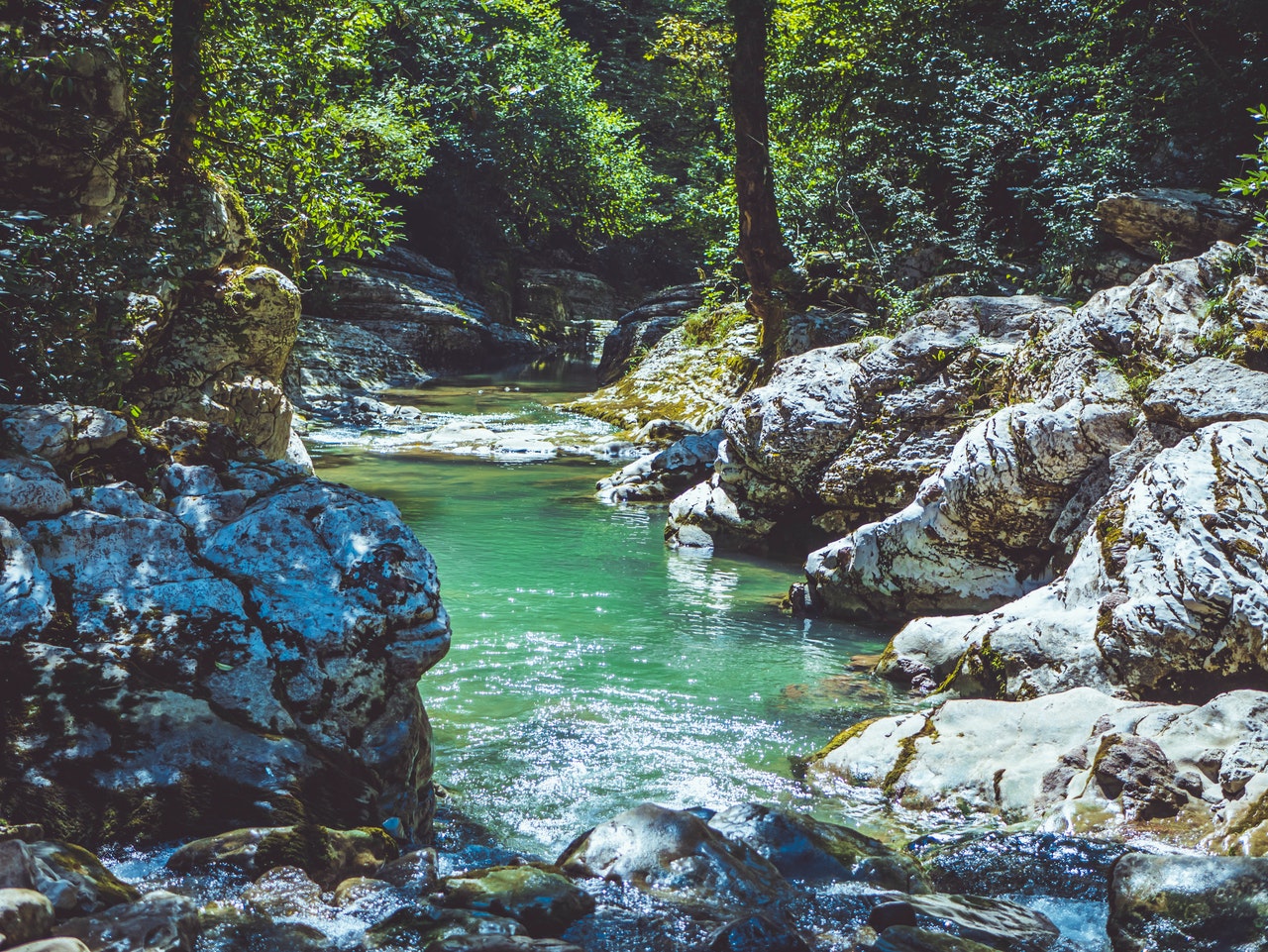Everyone deserves a name. To be nameless is to be unknown, not even worthy of identity. There’s a nameless creek just down the hill from my apartment. Usually just a trickle moseying downhill alongside the chain link fence between two dingy garden-style apartment neighborhoods and through a pipe under the main road, it’s obvious why this creek isn’t registered in the county’s list of waterways and watersheds. When it rains though, the creak rushes and crashes, spilling over his* banks. I spent some time on Google Maps and determined that my creek makes her* way to Whetstone Run, Great Seneca Creek, the Potomac River, and eventually, the Chesapeake Bay and Atlantic Ocean. I suppose once the water has travelled a few miles in anonymity, we deem them* worthy of a name.

Very Important Things™
I wonder if the Piscataway people who used to live with this land knew my little creek, or if she was dug out by 1970s builders as they dug foundations, poured concrete, and buried the Earth under asphalt, changing where rainwater flowed and rested. The Piscataway language is extinct, and I haven’t been able to find anything about what they called a stream too small to swim or fish in, but just right for wading and splashing on a hot day. Some other Algonquian peoples gave rivers names like the Ojibwe word sipi,** but this little creek really isn’t a river, and those nations didn’t live in my town anyway.
It feels wrong to me that no one, to my knowledge, has ever given my little creek a name. What they have given him is garbage. Hundreds, possibly thousands of bottles and cans. Dozens of grocery bags, chip bags, and other film plastics. More than one innerspring mattress, a beanbag chair, several jackets, a few condoms, 15 feet of chain link fence, and the rusted-out wheel of a mid-size sedan.
As part of my devotional practice of Lent this year, each day I took a break from the Very Important Things™ I was doing, put on boots and gloves, and visited the creek. Some days I spent that time picking up litter and sorting it into trash and recycling. Sometimes I gathered rocks to build up their eroded banks, pruning thorns from well-worn footpaths to protect the rest of the undergrowth and clearing blockages where sticks, leaves, and trash caused stagnant water and algae blooms. I wonder what specific actions Jesus performed during his 40-day sojourn in the wilderness. I imagine that he spent some of that time caring for the wilderness, honoring the divine nature in each being he encountered there, including the rocks he didn’t turn into bread.
Each day I took a break from the Very Important Things™ I was doing and I quietly addressed a need. Often, I’d wander through the brush, filling bags with bottles and cans or pulling algae-coated plastic out of the creek bed. I came to relish the aches in my back that followed a particularly focused hour of picking broken glass out of the pebbles along the banks, and I felt a surge of pride each time I wore out another pair of gloves or had to re-patch the tears in my muddy work jeans.
My time with the creek was quiet, peaceful, and soul-nourishing. I became intimately familiar with the creek. Now I know the bends in the creek shallow or narrow enough to cross in sneakers, the spots where Nick (6) and Owen (3) sink up to their knees in soft mud, the spots where 12 new beer cans might appear overnight. Often, my kids would work with me. Owen loves picking up broken glass, and almost always remembers that he needs to put his gloves on first. Nick adopts spots as “secret bases” and doesn’t rest until we’ve cleared all the trash from his new base. Caring for our friend the creek has become an integral part of who we are and what we do—when we got back from our spring break vacation, one of the first things Nick told me was that he was excited to see how the creek is doing, “and those teenagers better not have made more trash there.”
I haven’t written an essay in years, and I was never good at punchy conclusions, but I’ll close like this. The Earth is a person. My little creek is a person, and what’s more, the molecules that are part of me right now will be part of someone else one day, as they were someone else before me. “Connecting with nature” has become a buzzword of sorts, but simply using the land for our own benefit, for “self-care,” is not connection—connecting is reciprocal. It’s about graciously receiving nature’s gifts and generously offering our own gifts in return. I ask myself, and you, “what can we offer to replenish, enliven, and name the world that pours herself into us?”
*Robin Wall Kimmerer has written about the grammar of animacy, “In English, we never refer to a member of our family as ‘it,’ or indeed any other person. Such grammar would be a profound act of disrespect. ‘It’ robs a person of selfhood and kinship, reducing a person to a mere ‘thing.’” In that spirit, I use the pronouns of personhood for my friend the creek.
** https://protoalgonquian.atlas-ling.ca/#!/entry/5ab2bde1-e7a8-4248-b04d-15f4074b97b0
Josh Higham lives in Maryland, where he picks up litter, plays softball, buys too many Star Wars books, tells his 3 and 6-year-old kids they’re full of beans, and does data analysis in a walk-in closet that serves as his office. He and his spouse, Alison, have been exploring the wilderness together since 2014.
